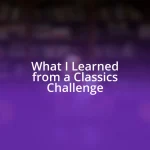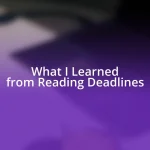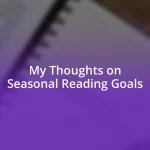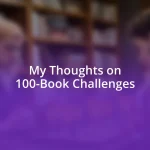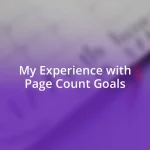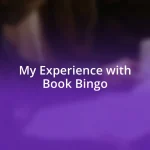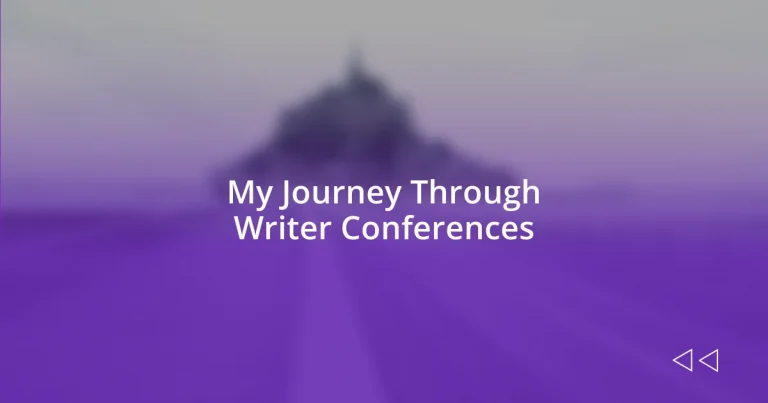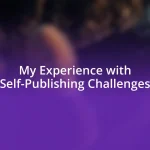Key takeaways:
- Conferences are energetic environments that foster camaraderie among writers, providing opportunities to learn and connect through workshops, networking events, and shared experiences.
- Preparation is essential for making the most of a conference; planning sessions, packing smartly, and setting realistic expectations enhance the overall experience.
- Post-conference follow-ups, whether through emails or social media, are crucial for maintaining connections and potentially developing collaborations beyond the event.
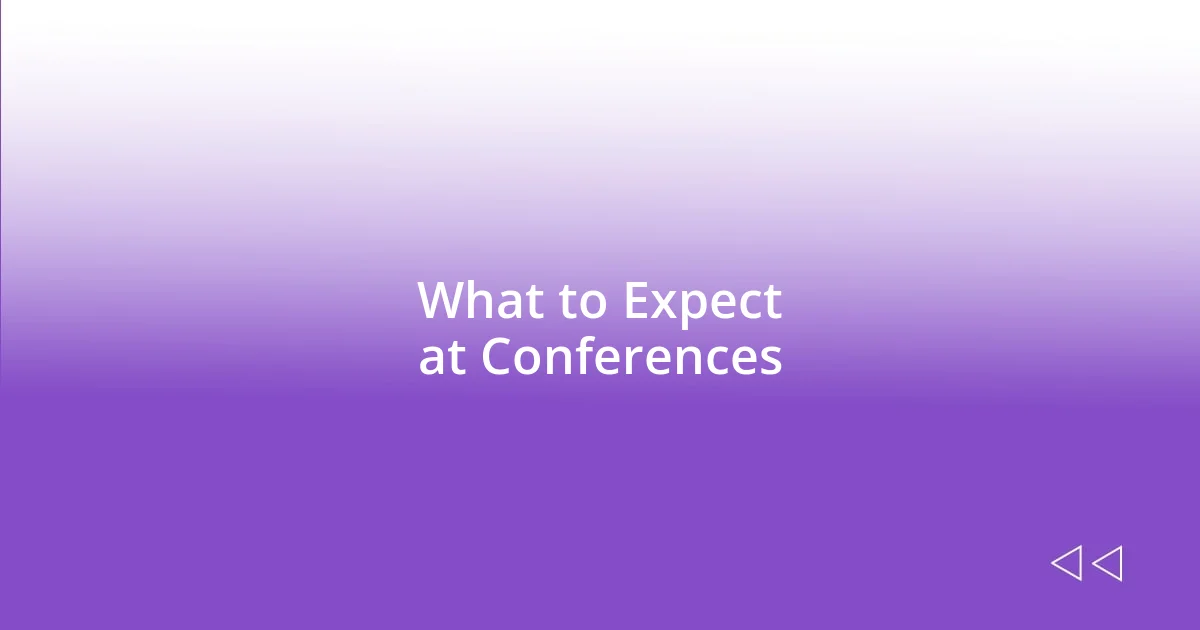
What to Expect at Conferences
At conferences, you can expect a whirlwind of energy and creativity. The anticipation builds as you walk into the venue, surrounded by fellow writers, each with their unique story. It’s exhilarating! I remember my first conference where I was so nervous, yet the moment I struck a conversation with a fellow attendee, it felt like stepping into a warm embrace of camaraderie. Isn’t it amazing how shared passions connect us?
Workshops and panels are the heart of these gatherings. They offer invaluable insights, often delivered by industry veterans who have been in the trenches themselves. One workshop I attended on storytelling changed my perspective entirely. The speaker shared not just techniques but also her personal struggles, making me realize we all grapple with similar challenges. Have you ever found inspiration in someone else’s experience? It’s reassuring to know you’re not alone.
Networking events are a crucial aspect, opening the door to potential collaborations. I vividly recall a casual dinner where a simple conversation led to the start of a great partnership on a writing project. It made me think: who might you meet that could change your journey? The connections forged at conferences often extend beyond the event, shaping our paths in ways we can’t predict. Whether it’s exchanging contact information or just sharing a laugh, the moments made here can leave a lasting impact.
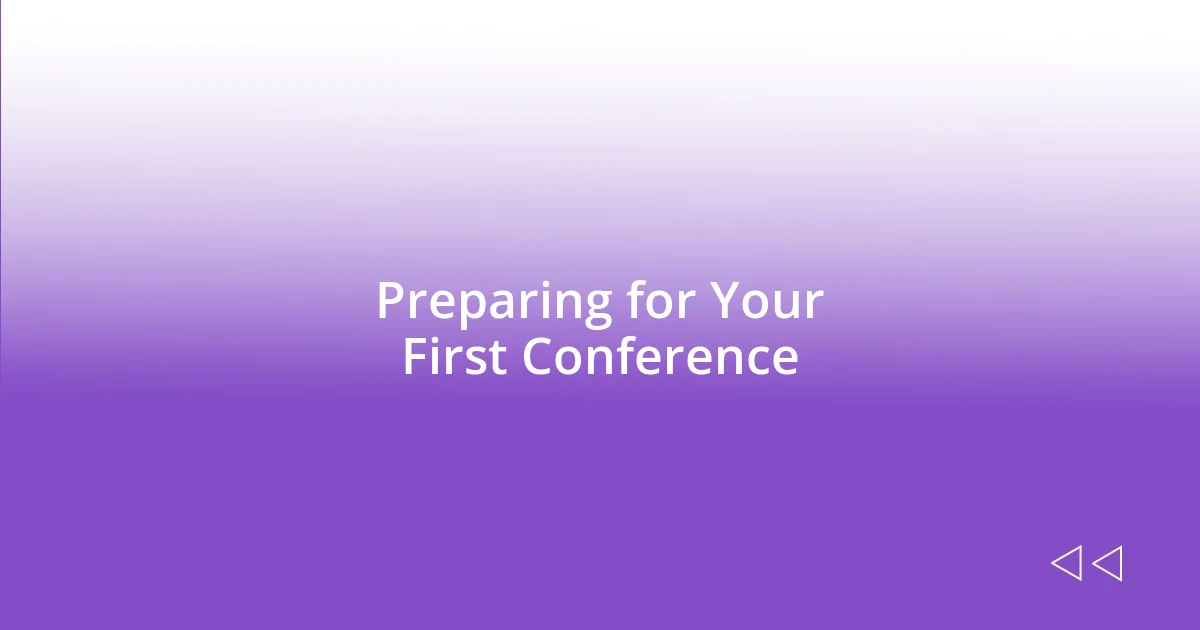
Preparing for Your First Conference
Preparing for your first conference can feel daunting, but with the right approach, it becomes an exciting journey. I remember meticulously going through the conference schedule weeks ahead, jotting down sessions I didn’t want to miss. That process not only helped me focus my goals but also made the overwhelming array of choices much more manageable. What sessions resonate with you?
Packing essentials is another key part of the preparation. I found that creating a checklist made a world of difference. Think about your notebook, pens, and business cards. Don’t forget comfortable shoes! I learned the hard way—my feet were sore after a whole day of walking from one session to another. What items would you find essential for comfort and productivity?
Lastly, setting realistic expectations is crucial. I went in thinking I’d connect with everyone and learn everything, but I quickly realized it’s about quality over quantity. I focused on two or three key sessions and made a few meaningful connections, rather than trying to be everywhere at once. How do you plan to prioritize your time?
| Preparation Aspect | My Experience |
|---|---|
| Session Planning | Meditated on my must-see sessions, which eased my nerves. |
| Packing Essentials | Checklist helped avoid missing important items; learned the need for comfy shoes. |
| Setting Expectations | Focused on quality interactions rather than quantity—much more rewarding. |
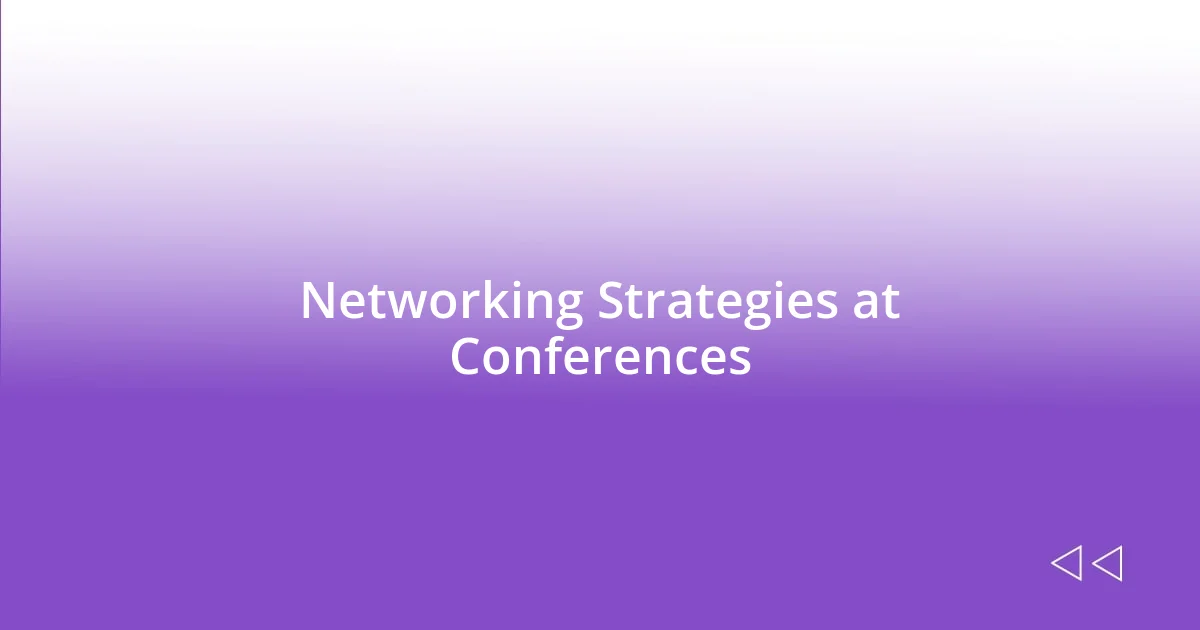
Networking Strategies at Conferences
Networking at conferences can feel like a double-edged sword. On one hand, the excitement of meeting like-minded individuals is palpable; on the other hand, I remember feeling completely overwhelmed at my first event. To ease the tension, I learned to approach networking as a series of small, meaningful conversations instead of a grand “everyone must know me” scenario. I also discovered that being genuinely interested in others often leads to authentic connections. It’s not just about exchanging business cards; it’s about forming relationships that can last beyond the conference.
Here are some strategies that worked for me:
- Start with Small Talk: Break the ice about the conference itself; it’s a shared experience.
- Ask Open-Ended Questions: People love to share their stories. Asking about their writing journey can open up a deeper dialogue.
- Follow Up Post-Conference: Send a quick email or message referencing your conversation; it shows you care and helps solidify the connection.
- Utilize Social Media: Engage with attendees online during and after the conference—join discussions, share insights, and support each other’s work.
These strategies don’t just make networking easier; they transform it into a rewarding and enjoyable experience. I remember walking away from one conversation, feeling an electric sense of possibility as I realized that I wasn’t just meeting fellow writers—I was finding potential collaborators and friends.
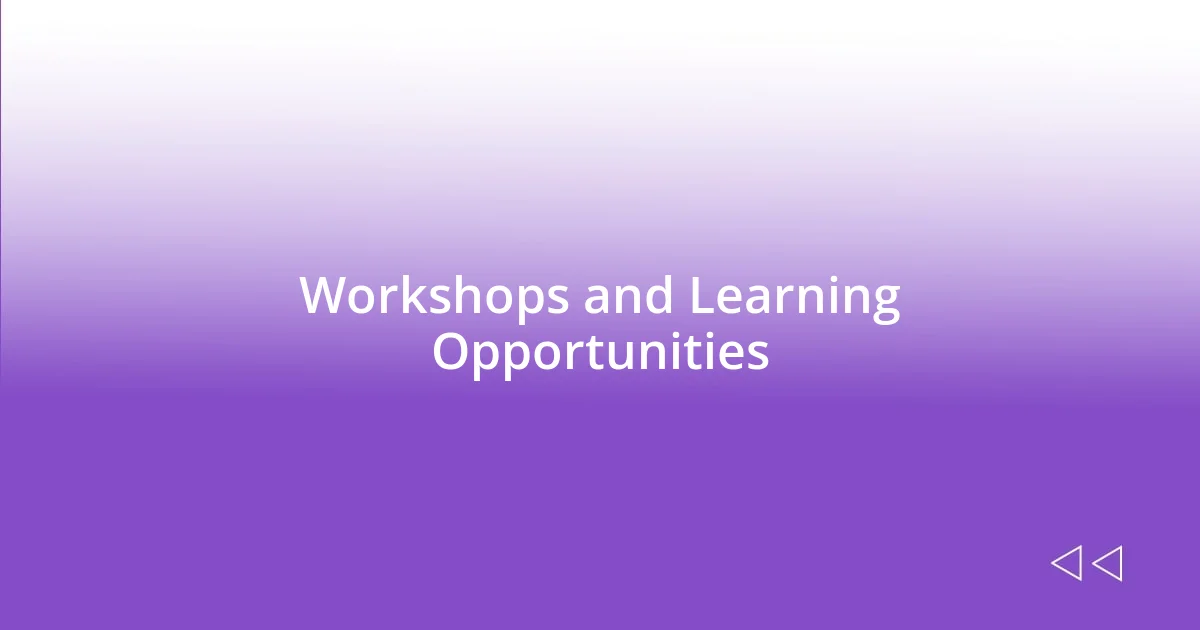
Workshops and Learning Opportunities
Workshops and Learning Opportunities
Diving into workshops at conferences can be a game-changer for a writer like me. I recall attending a session on character development that quite literally turned my perspective upside down. The instructor shared techniques that encouraged me to dig deeper into my characters’ motivations, and I left feeling inspired to rewrite parts of my manuscript. Have you ever experienced a shift in your writing simply from new insights gained in a workshop?
What’s truly exciting is the chance to learn directly from industry experts. I once sat in a workshop about self-publishing led by a successful author who shared their journey with brutal honesty. The mixture of practical advice and personal anecdotes created an atmosphere of trust and vulnerability. It wasn’t just a lecture; it felt like a shared experience, making the lessons all the more impactful. How can you leverage these insights to enhance your own writing path?
The variety of formats—panel discussions, hands-on writing exercises, and Q&A sessions—opens up a treasure trove of learning. I found that participating in breakout sessions allowed me to engage more closely with other writers, brainstorming ideas and sharing feedback. It felt like a creative playground where everybody was encouraged to unleash their thoughts. Have you ever found yourself igniting inspiration in a collaborative setting? That feeling of camaraderie among fellow writers can be incredibly uplifting and motivating.
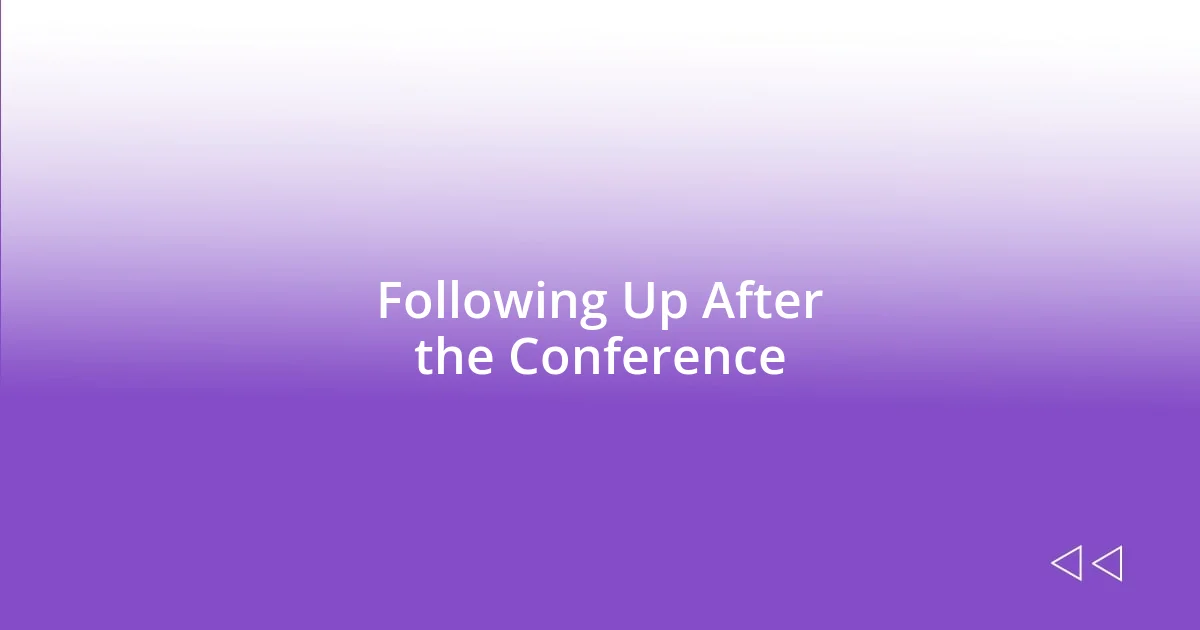
Following Up After the Conference
After a conference, I always make it a point to reach out to those I connected with. It might be as simple as a brief email saying how much I enjoyed our chat about writing processes or sharing a link to an article we discussed. This small gesture not only reminds them of our conversation but also lays the groundwork for a lasting relationship. Have you ever considered how a simple email can keep the magic of the conference alive?
I remember one particular conference when I reached out to a fellow writer who talked about her struggle with self-doubt. I shared an article that had helped me with my own writing insecurities. She replied with gratitude, and we ended up discussing our projects over a video call. These follow-ups can spark unexpected collaborations or provide support systems that extend far beyond the conference walls. Isn’t it interesting how the seeds you plant during these events can grow into flourishing partnerships?
Social media plays a vital role in continuing those connections, too. I often post about the sessions that inspired me or share quotes from speakers that resonated deeply. Tagging individuals that I met at the conference not only reinforces our bond but keeps our writing conversations going. Recently, I shared a photo from a panel discussion, and one of the speakers commented, reigniting our conversation about potential mentorship. Have you thought about how you can leverage social media to stay connected with your writing community?


